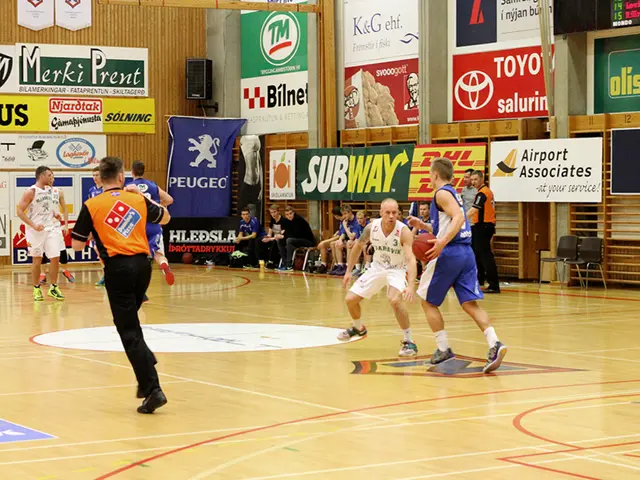Title: Rising Tide of Anti-Semitism in German Jewish Communities
According to recent reports, one in three Jewish communities across Germany has experienced a disturbing surge in anti-Semitic acts, such as graffiti, insults, and threatening phone calls and emails. This alarming trend was highlighted by Germany's Central Council of Jews, which conducted a survey among Jewish communities in the country.
"The rising tide of anti-Semitism is a chilling reminder that hatred and intolerance remain prevalent in our society," said Central Council President Josef Schuster. "Regardless of whether it stems from far-right, far-left, or Islamist extremism, anti-Semitism is an attack on open society and the rule of law."
The survey, conducted between November 20-30, revealed that 80% of those polled feel less secure living as Jews in Germany since the Israeli conflict with Hamas began on October 7. The report highlighted that the main victims of such incidents are senior citizens, families with children, and young people.
Despite these concerning findings, the survey showed that 96% of the communities surveyed were satisfied with the cooperation with security authorities. Alongside politicians and religious leaders, the police were mentioned as being among the communities' most important partners in combating this issue.
Schuster acknowledged the ambivalence of the results, stressing the need for all members of society to stand together against extremism. "We must not allow extremists of any stripe to endanger our community," he said.
The Context of the Incidents
Recent data reveals that anti-Semitic incidents have seen a significant increase in Germany since 2023, particularly in incidents of extreme violence, attacks, property damage, threats, and abusive behavior. According to the Federal Association of Departments for Research and Information on Antisemitism (RIAS), there were 1,383 incidents in Berlin alone in the first half of 2024, compared to a total of 5,154 incidents the previous year.
Most concerningly, there have been incidents against children, with six out of 23 attacks directed at minors. Young people have also been affected, with incidents occurring in academic institutions and involving threats and abusive behavior. The occupation of university buildings by pro-Hamas protesters has been a significant issue, leading to a parliamentary motion to address antisemitism in educational institutions.
The surge in anti-Semitic incidents is largely attributed to the Hamas-led invasion of southern Israel in October 2023, which led to a record increase in pro-Hamas demonstrations and incidents across Germany. The German Jewish community has reported feeling increasingly threatened as a result, leading to measures like hiding their Jewish identities in public to avoid potential attacks.
The Central Council of Jews in Germany has condemned the increase in anti-Semitic acts and urged the German authorities to take a firm stance against criminality and extremism. Schuster emphasized that anti-Semitism is an attack on open society and the rule of law, and that it must not be allowed to endanger the community.
Conclusion
The rise in anti-Semitic incidents against Jewish communities in Germany is a concerning development that underscores the need for increased vigilance and action against hatred and intolerance. As a community, it is essential to stand together against extremism and work collaboratively with authorities to ensure the safety and wellbeing of everyone, regardless of their religious beliefs or background. Only by taking a united front against such acts of hatred can we create a society that values and upholds the principles of openness, equality, and inclusivity.








